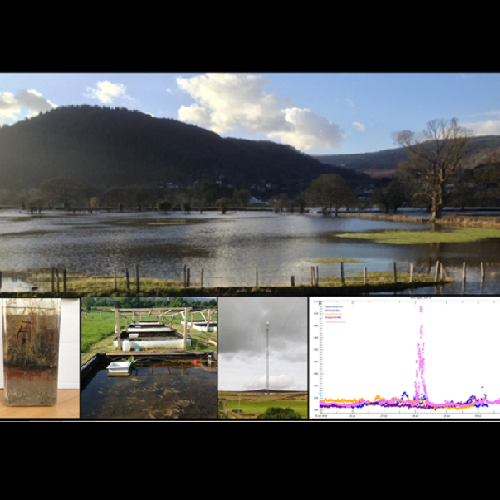Extreme weather events exacerbate nitrous oxide emissions from soil (Extreme-N2O)

Accurate estimates of agricultural greenhouse gas emissions underpin national land use policy and subsequent targets, e.g. the recent UK target for net zero carbon emissions by 2050. However, modelling of terrestrial sources of nitrous oxide (N2O) using atmospheric concentrations reveals that the bottom up greenhouse gas inventory for UK N2O emissions is either missing a major source(s) or underestimating a source(s). Increasing frequencies of extreme weather, e.g. prolonged drought and flooding, disrupt soil carbon, nitrogen and hydrological cycles, affecting the production and emission of greenhouse gases from soils as they recover their aeration status (post flooding) and moisture status (post drought). Increased N2O emission from soils during and post extreme weather events may be responsible for this ‘missing’ N2O. Whilst much is already known about the magnitude of N2O emissions from soil, most experiments used to derive improved N2O emission factors for use in in national greenhouse gas inventories have been conducted in the absence of extreme weather. The Extreme-N2O project will test the hypotheses that i) extreme weather events exacerbate N2O production and emission from soil, and ii) extreme weather events contribute to the ‘missing’ N2O.
You will explore the effects of enhanced frequency of prolonged flooding and drought on carbon and nitrogen cycling, focussing on factors controlling N2O production and emission. You will become competent in the use state-of-the-art methods in Bangor University and Rothamsted Research North Wyke to study atmosphere-soil-plant interactions, including portable field and specialist laboratory greenhouse gas emission measurement equipment, stable and radio-isotopes and analysis of the nitrifier and dentirifier communities. Working with colleagues at the Met Office you will also explore tall tower atmospheric N2O concentration data to identify peaks in atmospheric N2O following historical regional prolonged-flooding and rewetting (after-drought) events and use atmospheric transport modelling to estimate the N2O source strength.
Applicant should hold a 2:1 degree or above in a subject related to this PhD project including: Biology, Environmental Science, Microbiology, Agriculture, Biotechnology, Meteorology.
For further information please contact Prof. David Chadwick (d.chadwick@bangor.ac.uk).
